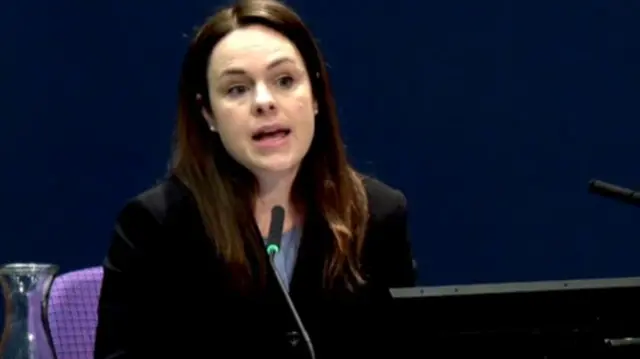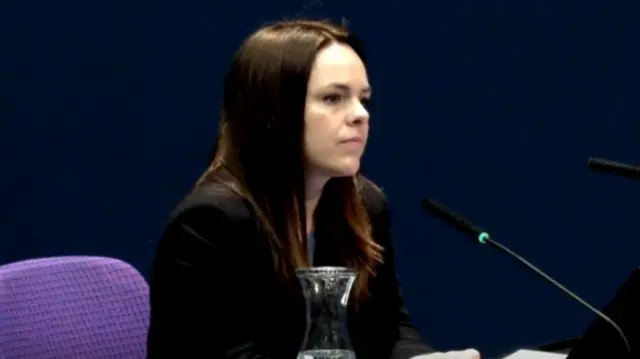Ex-finance secretary outlines flaws in economic modellingpublished at 11:35 GMT 30 January 2024
Inquiry lawyer Jamie Dawson KC suggests there was little consideration given to the overall economic impact of the pandemic.
He asks if modelling of the financial impact had been done in time.
"Yes," Kate Forbes responds, "but I don't think it captured the full extent of the pandemic as it unfolded."
Initially it was thought the health budget would need an additional £800m - "we ended up spending over £5bn," she says.
"The economic modelling did not capture the full extent of a two and a half year impact on the economy."




